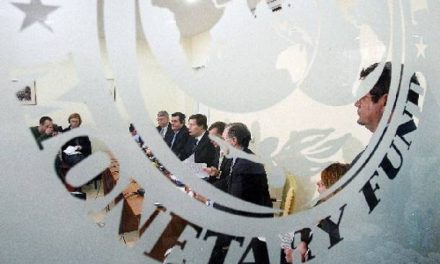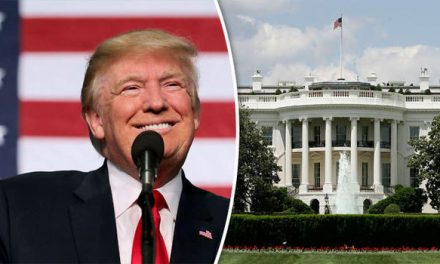President Barack Obama authorized limited airstrikes against Sunni militants in Iraq, potentially reengaging the U.S. military in a conflict that Obama pledged to leave behind when he first won office.
Obama said yesterday that the strikes, if needed, would be used to protect U.S. personnel and Yezidis, a minority sect concentrated in northern Iraq, who have been targeted by militants and are stranded on a mountain. The president also said American military planes are dropping food and water for thousands of Yezidis.
The extremists “have called for the systematic destruction of the entire Yezidi people, which would constitute a genocide,” Obama said last night in remarks from the White House. “The United States of America cannot turn a blind eye.”
Just six years after Obama made pulling the U.S. out of Iraq the centerpiece of his successful presidential campaign, and after he oversaw the withdrawal of forces from Iraq in 2011, the president said he couldn’t ignore the threat posed by the Islamic State fighters.
Obama said U.S. must also protect its diplomats and civilians if the militants move toward the Kurdish city of Erbil, the location of an American diplomatic outpost.
No U.S. strikes had taken place, according to administration officials, who briefed reporters on condition of anonymity shortly after Obama spoke.
The president’s airstrike authorization doesn’t cover other areas where the Islamic State is encroaching, including Syria or Lebanon, the officials said.
‘Take Action’
“I have been careful to resist calls to turn time and again to our military,” Obama said. “But when the lives of American citizens are at risk, we will take action.”
The escalation in U.S. involvement in Iraq comes as the Islamic State, the extremist group that’s conquered swaths of northern Iraq since June, extended its advance by seizing the Mosul Dam, the country’s largest. The Sunni militants’ offensive — and their threats to kill religious minorities — has panicked tens of thousands of people and emptied towns that for centuries have been home to Yezidi and Christian communities.
“They’re advancing much more quickly than our policy is, I think that’s pretty clear,” Andrew Tabler, a senior fellow at the Washington Institute for Near East Policy, said in an interview before Obama spoke.
Market Reaction
Markets moved lower after Obama spoke. Futures on the Standard & Poor’s 500 Index dropped 0.6 percent by 1:18 p.m. in Tokyo and Treasury yields fell to the lowest in more than a year. Yesterday, oil prices rose on news that the dam had been taken, with Brent for September settlement climbing 85 cents, or 0.8 percent, to end the session at $105.44 a barrel on the London-based ICE Futures Europe exchange.
U.S. lawmakers of both parties said last night they backed Obama’s decision to provide humanitarian aid and authorize airstrikes. Two frequent critics of Obama’s approach in Iraq, Republican Senators John McCain of Arizona and Lindsey Graham of South Carolina, said the president isn’t doing enough.
“These actions are far from sufficient to meet the growing threat” posed by the extremist group, they said in a joint statement.
McCain and Graham urged the U.S. to strike at the Islamic State by air and provide more military aid to Kurdish forces, the Iraqi government and rebels in Syria, where the group also controls territory.
“None of this should be contingent on the formation of a new government in Baghdad,” they said.
Americans Wary
In his remarks, Obama said he understood that Americans are wary of any military action in Iraq.
“Even as we support Iraqis as they take the fight to these terrorists, American combat troops will not be returning to fight in Iraq, because there’s no American military solution to the larger crisis in Iraq,” he said. “The only lasting solution is reconciliation among Iraqi communities and stronger Iraqi security forces.”
Obama had held back on authorizing airstrikes as the U.S has pressed Iraqi leaders to form a new government that excludes Prime Minister Nouri al-Maliki. U.S. officials consider Maliki, a Shiite, a divisive figure whose actions have pushed many minority Sunnis into an alliance with the radical Islamic State.
The U.S. has bolstered its military presence in Iraq, sending 300 people to do assessments of the Iraqi military and the threat from militants. An additional 470 U.S. forces previously had been authorized to bolster security, especially at the U.S. embassy in Baghdad.
United Opposition
While the U.S. and its regional allies are united in their opposition to the Islamic State, the decision to employ the military has been complicated by the fact that attacking the extremists would benefit Maliki and Iran, as well as the Kurds, who’ve long sought to build their own state from parts of Iraq, Iran, Syria and Turkey.
After the militants’ gains this week at Sinjar, near the Syrian border, about 140,000 people fled the region, according to United Nations Children’s Fund. While most escaped to Kurdish-controlled areas, about 50,000 people, half of them children, were stranded in the nearby mountains, UNICEF spokeswoman Juliette Touma said by phone from Iraq.
“I received a text message from one of my relatives there before his phone’s battery died, saying there is a mass grave for the children,” Housam Salim, the head of the Solidarity and Brotherhood Yezidi Organization, said in a phone interview yesterday from an area of Mosul controlled by Kurdish forces.
Buying Time
The airdrop, which included 5,300 gallons of drinking water and 8,000 packaged meals, may buy time to find a way that the U.S., neighboring Turkey, Kurdish forces and the Iraqi government can enable the stranded Yezidis to flee the mountains for a safe refuge.
The Islamic State has used beheadings to intimidate people in its advance across Iraq and Syria and terrorized religious minorities. It considers Yezidis, a community whose faith includes features of the ancient Persian religion of Zoroastrianism, as apostates according to its fundamentalist interpretation of Islam.
The Islamic State also has seized control of Qaraqosh, Iraq’s largest Christian town, and some surrounding areas in an eastward advance into an area formerly held by the Peshmerga, the Kurdish militia. The Kurdistan regional government has appealed for international help.
US airdrops food aid to Iraqis trapped after fleeing militants



















